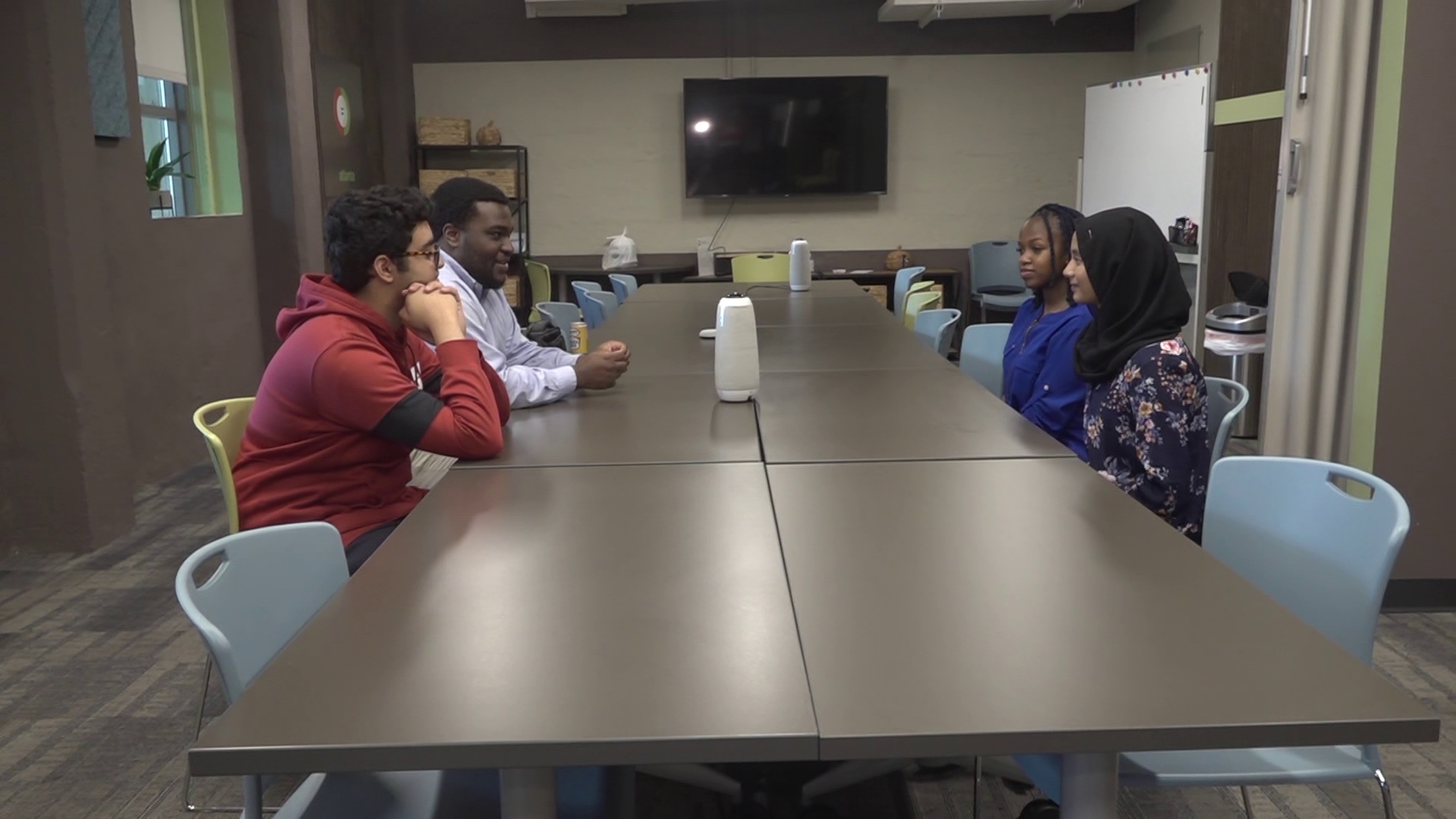ATLANTA — A group of students from several metro Atlanta districts is working to improve resources for students in Atlanta Public Schools by creating a student-led board to influence mental health policy.
The cohort is part of Our Turn, a national organization of student advocates with local chapters nationwide.
Our Turn’s metro Atlanta chapter has tackled audits on student punishment within accurate and historic education in the past. This year, the group’s focus is mental health resources within APS.
The students added their generation is still suffering from lingering mental health effects of the COVID-19 pandemic, and it’s affecting their academic performance and future success.
“You can have as many AP classes as you want in a school. You can have as many academic resources [as you want], but if you don’t have students that are motivated and excited to learn, you’re not going to have students take advantage of those resources,” said Neev Seedani, a recent graduate from Gwinnett County Public Schools.
Seedani plans to attend Stanford University in the fall as a Public Policy major, but he’s dedicating his summer to bettering the system for his peers in a neighboring school district.
“So I’m a Gwinnett kid; why would this matter to me? The thing is, if this is to be put in place, it’s going to spread to other counties. Atlanta Public Schools is just a starting spot,” Seedani said.
To help solve what they call a “mental health crisis” within the school system, Our Turn is working with APS leaders to create a student-led mental health community board to infuse students’ voices into the policies intended to help them.
Before the school year ended, several students stood before the school board at the May meeting to discuss creating the mental health community board.
Over the summer, they met with district leaders to approve a pilot board for the fall semester. They’ll start recruiting students as soon as they head back to school.
The district confirmed the summer meetings in a statement from Dr. Chelsea Montgomery, Executive Director of Student Services: “We have met with the leadership of Our Turn and look forward to continuing to work with the organization to foster student-led awareness and support for mental health and emotional well-being.”
As a rising senior at Carver Academy, part of the Atlanta Public Schools system, Brooke Hancock is determined to leave a legacy.
“The students are the future. Of course, right now, adults are in charge, but eventually, the next generation has to take over, then the next and the next,” she said.
Hancock has watched her peers struggle, failing to get the help they need.
“The people that go to my school don’t like to talk about their issues. They like to face substances or push it down until it all gets too much for them, and something that could have been stopped has happened now,” Hancock said.
She added the solution starts with student voices.
“Basically, the students feel like they’re not heard. They feel like if I open my mouth to say something, no one’s really going to care, so why should I say something? I want to see that change. I don’t want to lose any of my friends,” Hancock said.
Evan Malbrough leads Our Turn. With a background in voter advocacy and coming from the ACLU, he acts as a gentle guardrail as the students create proposals and presentations for the new board.
Riasha Ullah is a rising senior at Chamblee High School in DeKalb County. Even though she attends a different school district, she believes her experience as a teenager growing up in this generation transcends district lines.
“You have to live in the current moment to experience it and have a say in it,” she said. “When we’re talking about mental health, it’s not just something you can read a textbook and understand.”
Malbrough agrees that the problems facing young people today spread across district lines, thanks to this generation’s digital interconnectedness.
“You start to hear the same things and build those connections to say, ‘OK, it’s not just Mays. It’s not just Carver. It’s not just Maynard. It’s an interconnected system that all these students are in. If we tap into that, I think we could see a lot of great changes,’” he said.
Those who are interested in learning more about the group can contact Malbrough at [email protected] or visit Our Turn Atlanta website here.

